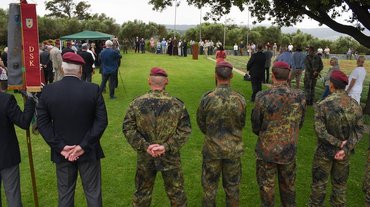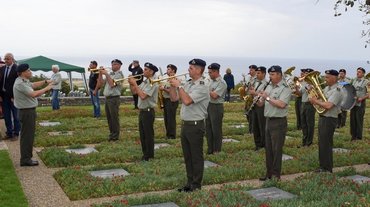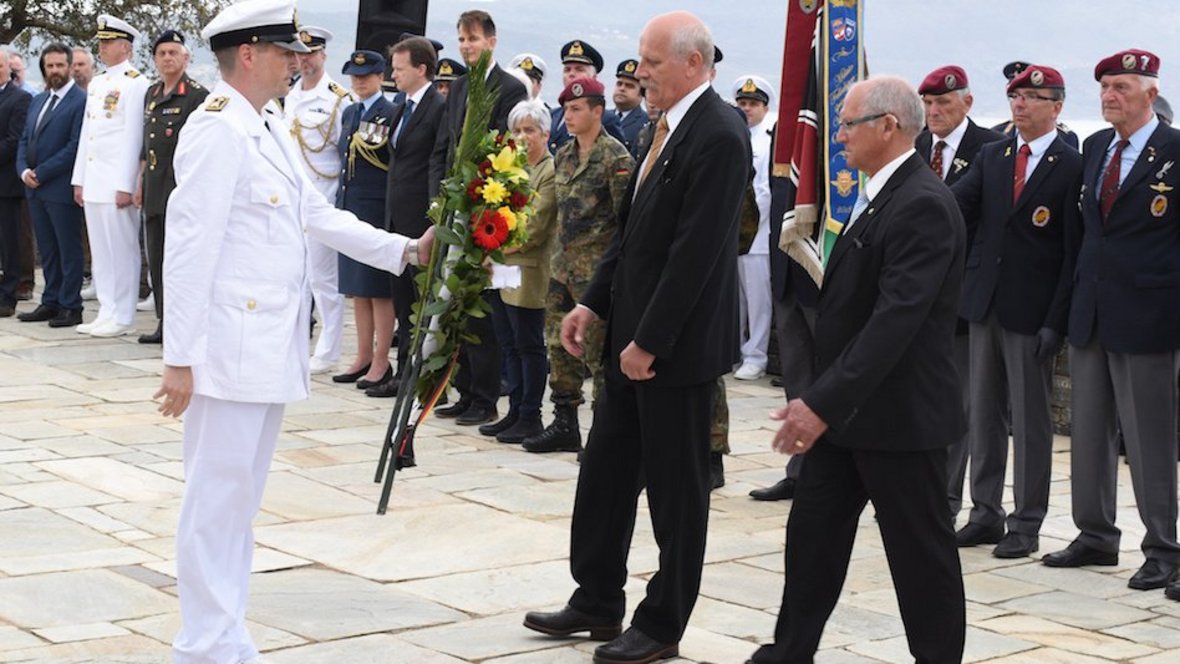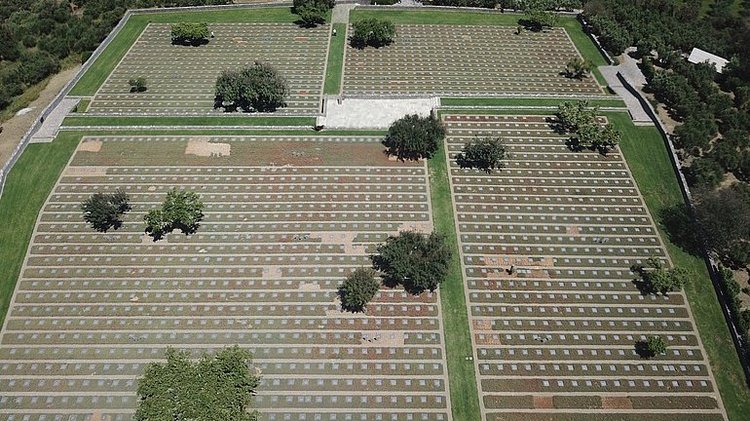
Commemorative ceremony in Maleme, Crete
Island of peace
Sometimes the most dreadful things that human beings can do to one another are perpetrated in the most beautiful of places. This is how it was exactly 78 years ago, when on 20 May 1941 the Wehrmacht launched its devastating attack on Crete. These events were remembered by the German embassy in Athens in its role as organiser of a dignified commemorative event at the war graves site at Maleme. Among those taking part was Volksbund national committee member Hartmut Tölle.
The burial ground, dotted with red flowers, has a meticulously maintained air and frames the magnificent view of the sea off Maleme. The cemetery is indeed a beautiful sight, and this is down to the regular hard work of the local maintenance staff as well as – at present – the commitment of Master Sergeant Dirk Bremm and his soldiers of the airborne Luftlandebrigade 1 from Saarlouis. However, everyone taking part in this act of remembrance knows that thousands lie buried here, individuals who gave their lives for an inhumane regime.
Painful memories
 Foto: Katerina Bonatou
Foto: Katerina Bonatou
The inherent contradiction was also invoked by Hartmut Tölle of the Volksbund in his remembrance address: “This German assault marked the beginning of a period of brutal violence and often despotism. The aims of the occupation were carried through in the face of fierce opposition by the Cretan inhabitants. The population was subjected to German reprisals that included brutal massacres and other serious war crimes. Attention also needs to be drawn here to the deportation of Crete’s Jewish inhabitants. Today these horrors would seem to be far from the thoughts of the holiday-makers on the island – with its picturesque nature and the wonderful hospitality of its people – and indeed they may not even be aware of them. Yet in many places and within many families on the island, the memories are painfully alive.”
It was therefore not necessarily to be expected that the Cretans should extend a hand to us Germans in the cause of reconciliation. This however is a prerequisite for the existence of a place of remembrance such as the German war graves site of Maleme on Crete. The gratitude that has been expressed is also shared by the 150 or so participants in this commemorative event, among whom were a coach party from Franconia under the supervision of Volksbund regional director Oliver Bauer, some 25 members of the Association of German Paratroopers and numerous guests of honour.
Joint prayers
 Foto: Katerina Bonatou
Foto: Katerina Bonatou
All in all, the event organised by the German embassy in Athens and hosted by Colonel (General Staff) Kammerer was conducted with great solemnity and was accompanied musically by a Greek brass band. The dignified conclusion consisted of the traditional Totengedenken or tribute to the dead, the national anthems, the laying of wreaths and joint prayers.
Among the guests was one family member, Gerhard Beier, whose paratrooper father was seriously wounded over Crete on 20 May 1941 and was subsequently stationed on the island. His son is now seeking to trace the descendants of the family with whom his father was billeted. This is so that he can express gratitude on behalf of his father, while at the same time making a gesture of reconciliation.
Hartmut Tölle’s closing words must have resonated strongly with him: “War graves are places of personal grief but also places of societal responsibility and engagement with our history. Making our war graves places of encounter, reconciliation and awareness of our history offers us an opportunity to avoid making mistakes and to work on constructing our European house based on values we have developed together.”

